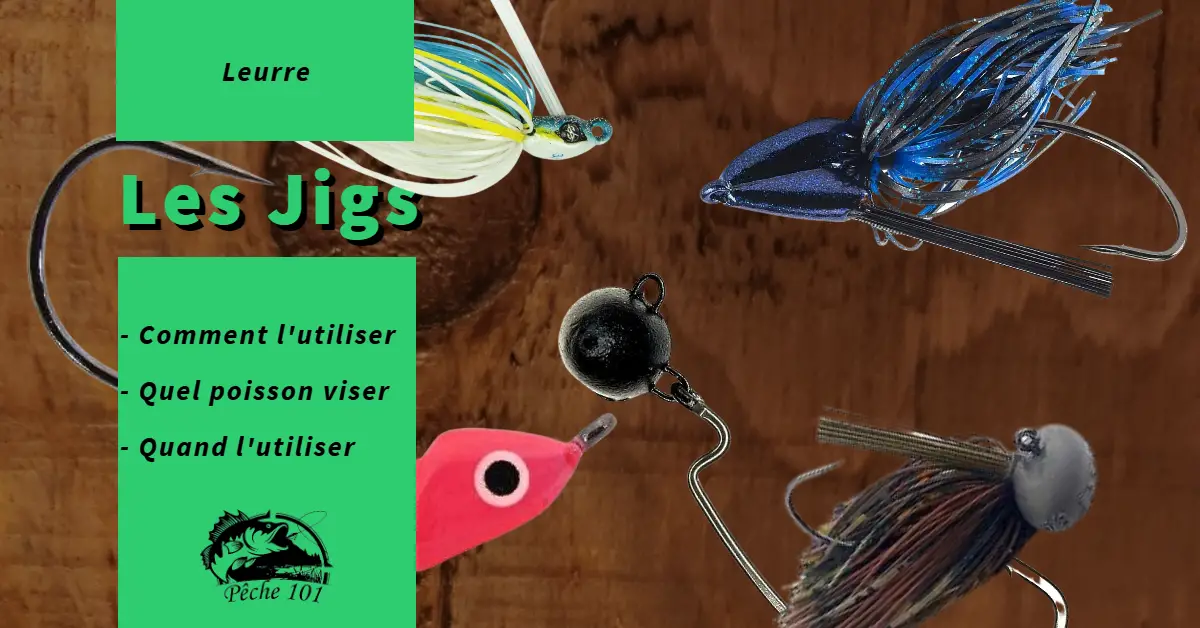In the world of fishing, the choice of lure is crucial for successful outings. Jigs, in particular, have become essential tools for many anglers.
But did you know that there is an incredible variety of these small weighted lures, each designed for a specific situation or fish?
In this article, we will not only introduce you to the different types of jigs, from the classic round head to the innovative chatterbait, but also offer expert advice on their use.
So, if you want to master the art of jig fishing, read on: a wealth of valuable information awaits you.
Article content
Round Head Jig
The Round Head Jig is a versatile classic, perfect for a variety of baits and species.
Round-head jigs are mainly used for worm fishing along the bottom.
Their design with a sphere-shaped head and perpendicularly positioned hook imitates natural prey.
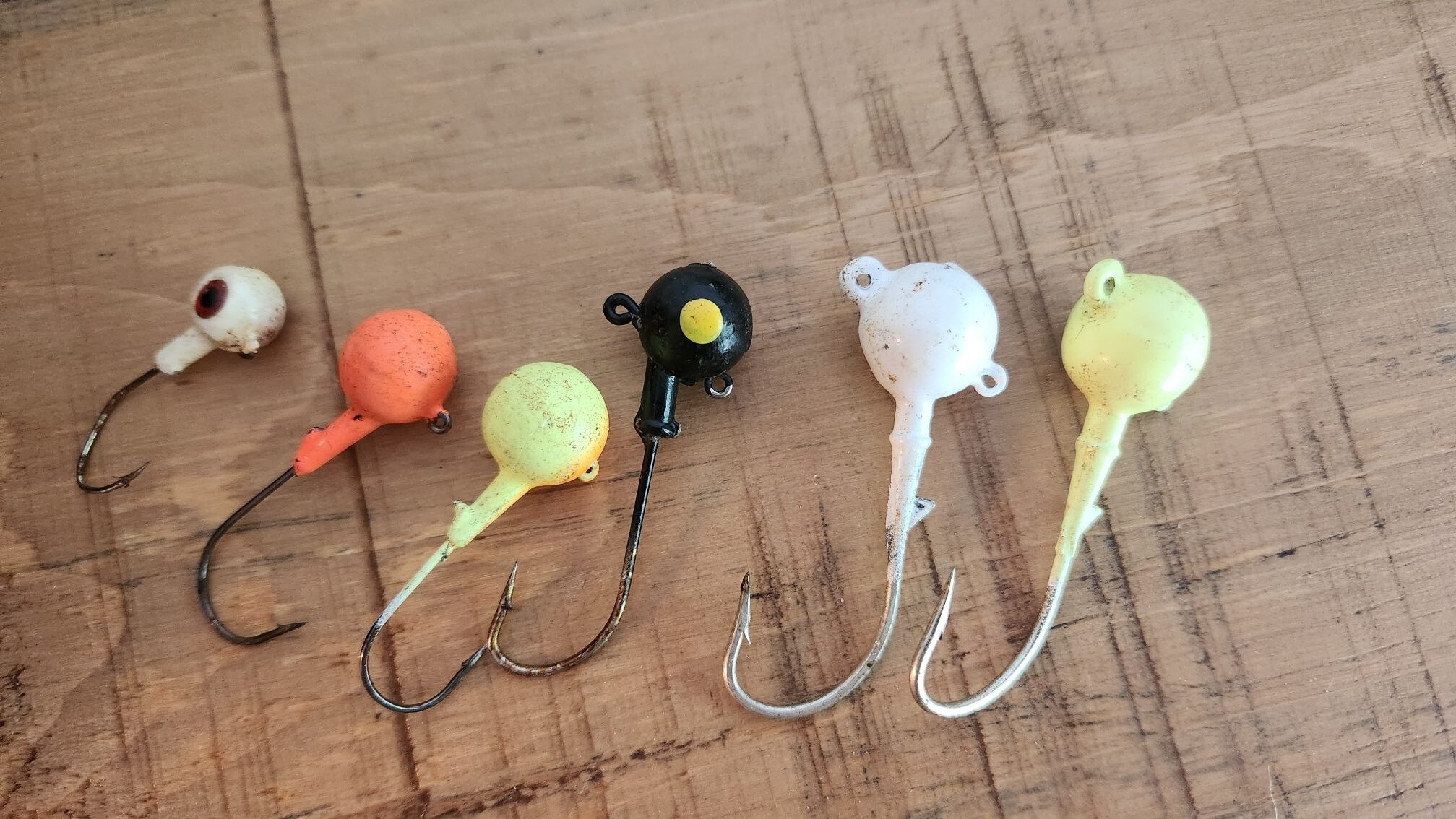
By animating them along the bottom, you can reproduce the movements of wounded prey, attracting predators in a variety of fishing conditions.
Very popular for walleye fishing.
Soccer Jig
The soccer jig is a lure specially designed to emulate the movements of escaping crayfish close to the bottom on hard substrates such as rocks, sand and gravel.
Its design enables it to navigate with ease in deep water, especially when launched over submerged obstacles in rocky areas.
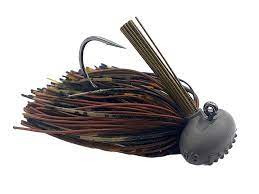
It's a versatile choice that remains effective all year round, but it particularly shines when bass (black perch) are in deep water.
Swim Jig
The swim jig features a tapered head and vertical attachment point for smooth swimming and excellent obstacle penetration.
Its downward-centred weight ensures stable swimming.
Suitable for bass fishing all year round: swim through weed beds, under docks or over submerged trunks.
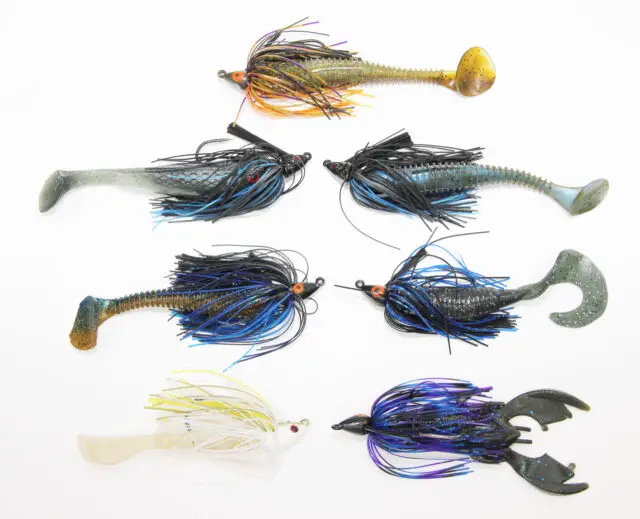
Image from: northwoodsbass.com
For deep exploration and slow retrieval, a 3/4 to 1 ounce swim jig proves effective for targeting bass near the bottom in summer.
Finesse Jig
Finesse jigs are distinguished by their small, single-head design, accompanied by a short skirt or collar.
These lures are particularly suited to waters subject to heavy fishing pressure, offering a more discreet option.
Unlike traditional jigs, finesse jigs are available in lighter weights ranging from 1/16 oz to 1/4 oz.
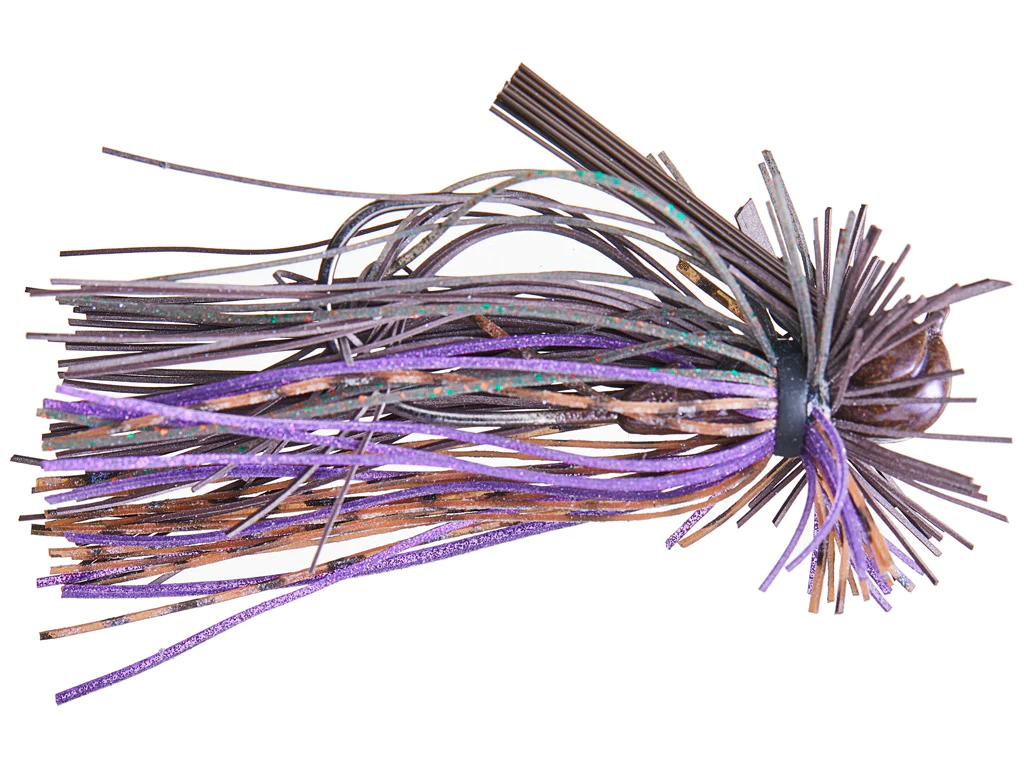
Fine jigs excel in contexts where fish are more modest in size. Their use with an imitation shrimp or aquatic creature can be a very good choice.
Flipping Jig
The Flipping Jig is specially designed for accurate casts in crowded environments such as grassy areas and docks.
With a weight ranging from ⅜ to 1 ounce, it features a compact head with a recessed attachment line, making it ideal for navigating tight spaces with great robustness.
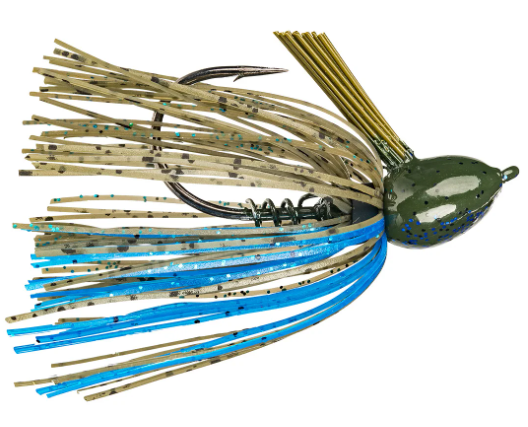
The integration of racks enhances its appeal to fish.
Arkie Jig
The Arkie Jig stands out thanks to its unique head design, which includes an integrated conical weed guard, extremely sharp hooks and a variety of particularly attractive colors.
Its special design is not only suitable for deep-water use, but also for flipping.
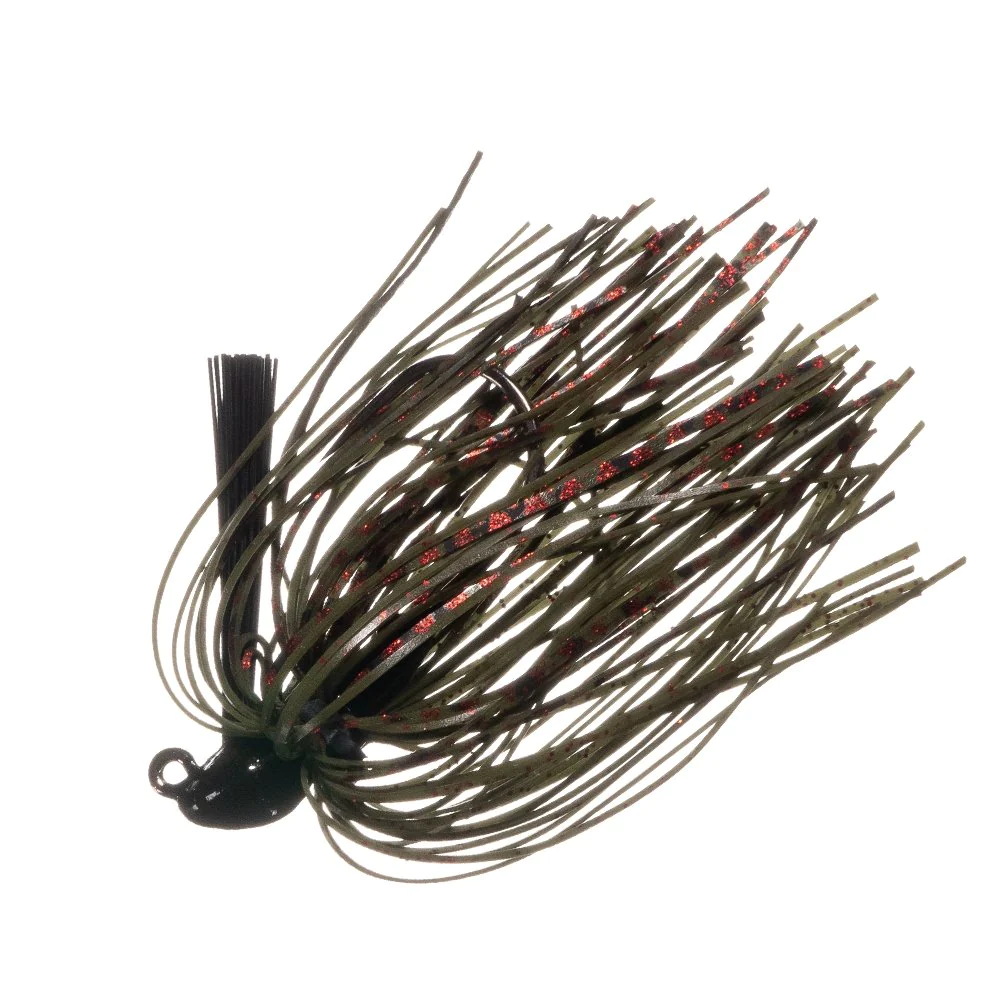
Image from: Arkie Lures
Whichever method you choose for handling this lure, the Arkie head is a strategic choice for targeting active bass feeding close to the bottom.
Hair Jig
The hair jig is characterized by its lightness and slow descent, allowing it to glide with ease through congested areas.
With its natural look and realistic action, it proves versatile, catching fish from 5 to 50 feet deep, including in suspension.
Effective in turbid waters, it shines particularly brightly in tinted rivers, proving its effectiveness even in conditions of reduced visibility.
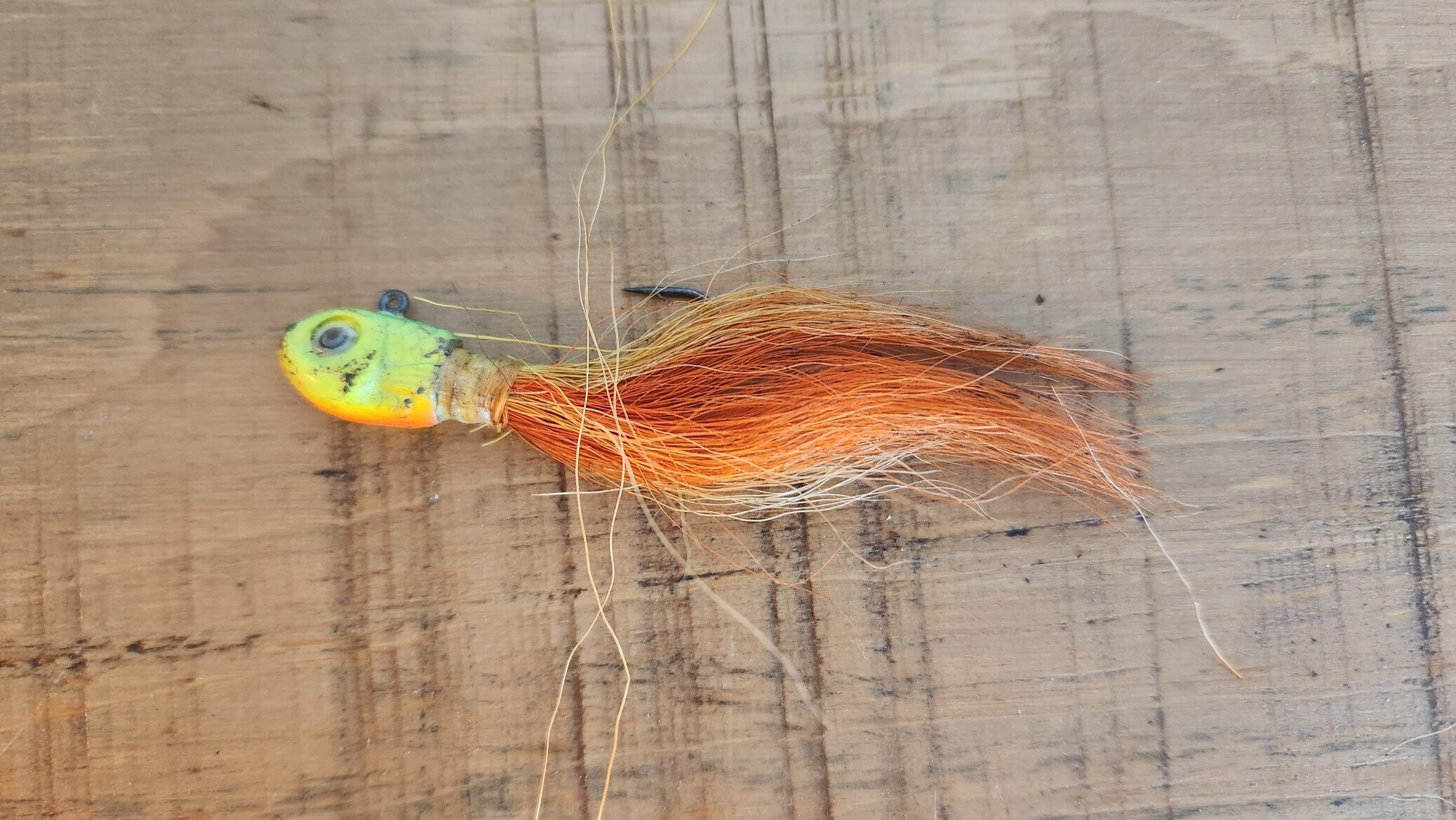
Hair jigs imitate crayfish and baitfish.
Shaky Head Jig
The shaky head jig is a light lead head, generally 1/16 to 1/4 ounce.
It allows the use of fine plastic lures. 1/8 and 3/16 ounce heads are suitable for shallow rocky areas, while a 5/16 ounce head is preferable for deeper water.
Both heavy- and light-casting reel configurations are possible, with a penchant for heavy-casting in clear, deep water.
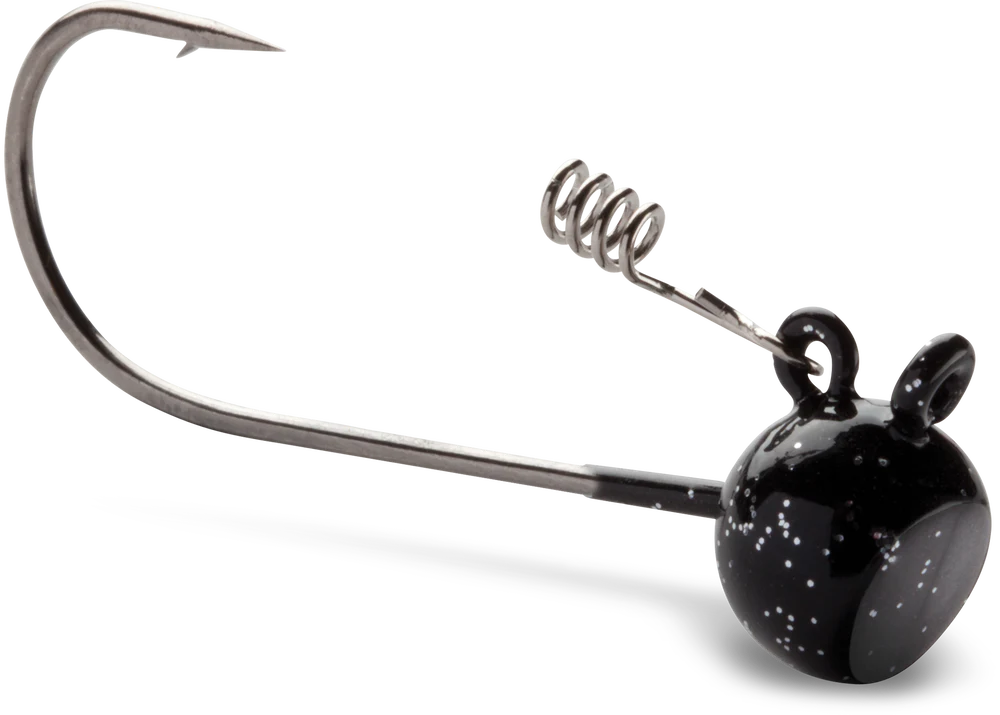
Image from: canadiantacklestore.com
The shaky head jig is effective around docks and in special conditions, such as during cold fronts or post-spawn (spring).
Ned Rig Jig (NRJ)
The Ned Rig Jig represents a finesse fishing technique involving the use of small plastic lures such as worms, crayfish or critters. Mixed with a light mushroom-style head to help them float above the bottom.
This method proves extremely effective thanks to its compact size, enabling bass to be enticed to bite even when their appetite is not for large prey.
Its small size also facilitates fishing with a light line, contributing to the line's virtual invisibility, even when retrieving very slowly.
A special feature of the Ned Rig is its ability to mimic crayfish, a constant source of food for the smallmouth bass throughout the year.
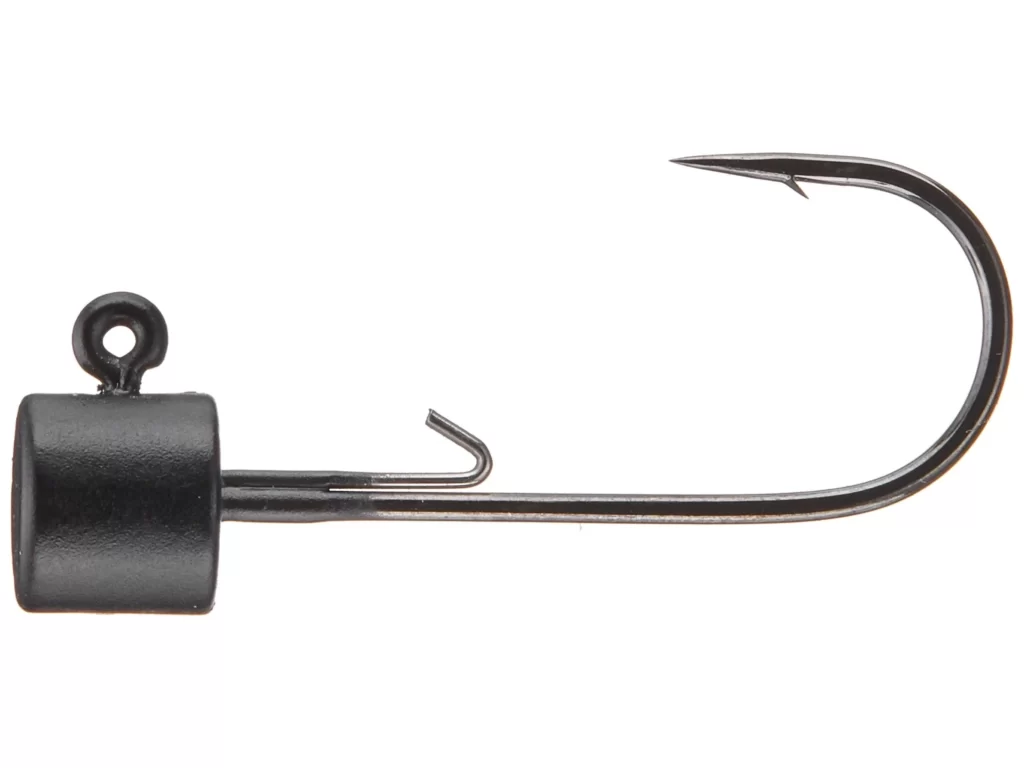
The variety of movements you can make with the bait allows you to simulate different prey.
Tube Jig
Tube jigs make an ideal duo for smallmouth fishing.
Mimicking crayfish and other bottom-feeding prey, they have been seducing bass for many years, although less recommended in spring.
These lures require a specific hook and weight system, where a lead or tungsten head is threaded into the body cavity, while the line attachment passes through the tube for connection to the line.
Its light weight allows effective action in shallow waters where smallmouths feed. Walleye (pike-perch) also find the appearance and drop of the light tubes attractive, without fear of the cast dislodging the bait.
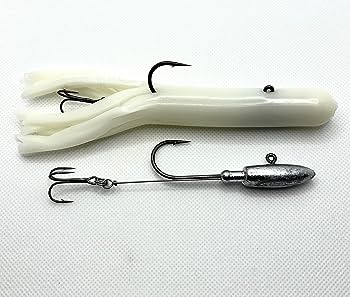
These tubes brilliantly imitate crayfish, baitfish, gobies and other prey, making them a versatile and effective choice for fishing.
Grass Jig
The anti-weed jig, often referred to as the "Grass Jig", is the solution of choice for those fishing in densely vegetated areas.
Specifically designed to navigate through weeds, seaweed and other underwater vegetation, this type of jig features a streamlined head and a hook guard that prevents vegetation from becoming entangled around the tip.
This design allows the angler to cast his line in areas where other lures could easily get snagged or tangled.
When the anti-weed jig is retrieved through vegetation, it gives a realistic swimming action that attracts predators.
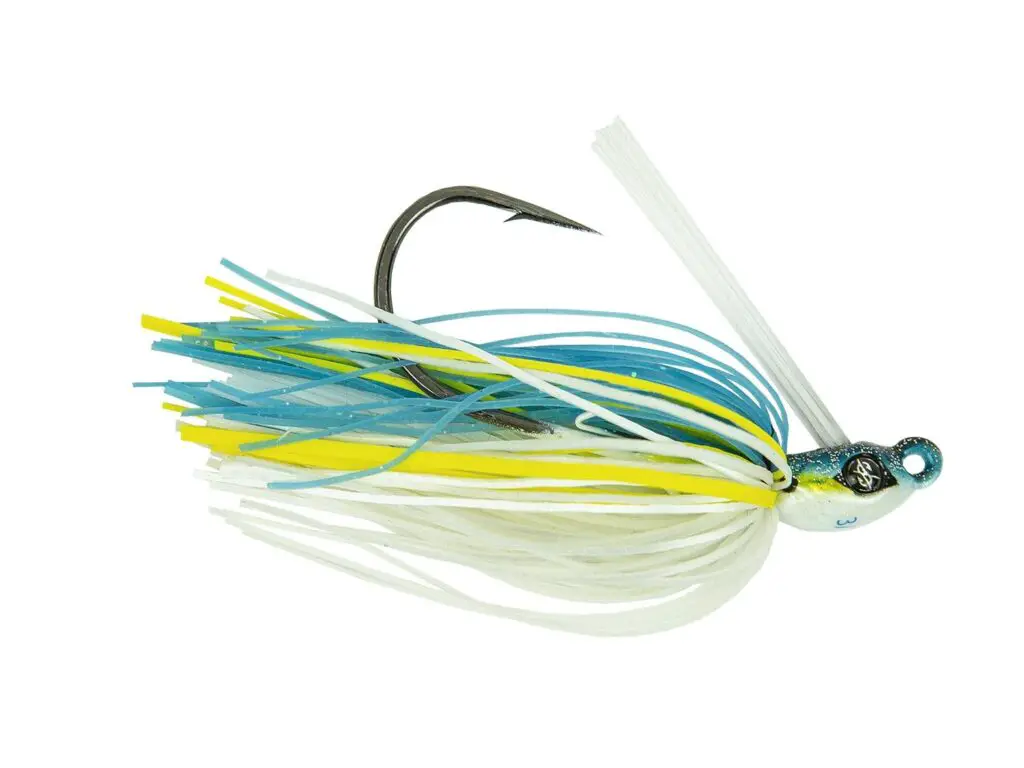
Pike, bass (black perch) and other carnivorous fish are often attracted to this type of lure, especially in vegetation-laden waters.
Stand-up Jig
The Stand-up Jig is a very popular type of jig for deep-water fishing.
Unlike other types of jigs, the Stand-up Jig is designed to stand upright on the bottom, imitating the natural posture of a baitfish or crayfish.
The Stand-up Jig is generally used to target bottom-feeding fish such as walleye and pike. It is also effective for fishing in rocky areas and areas where fish hide in underwater structures.
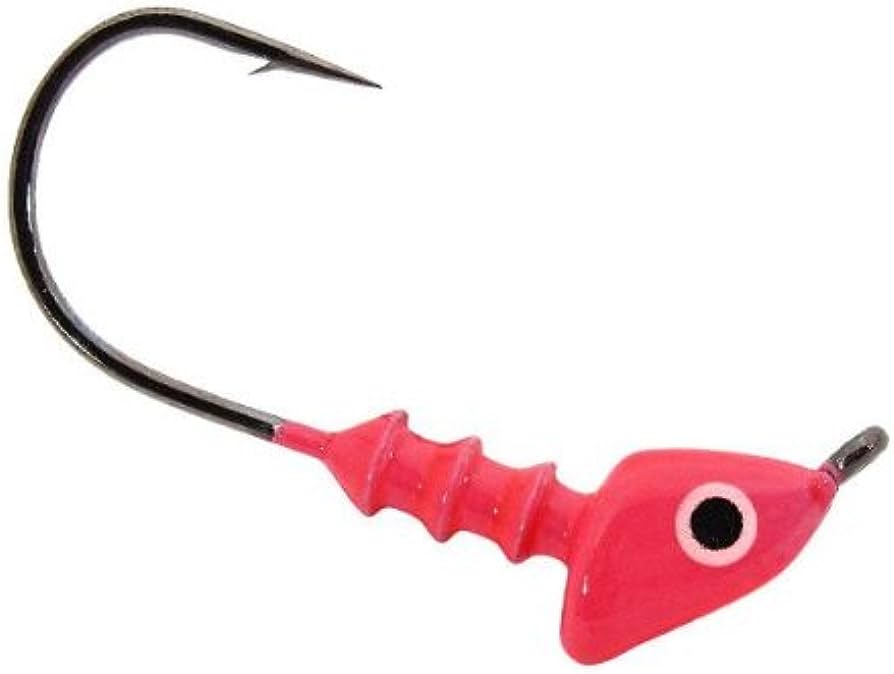
The Stand-up Jig is available in a variety of sizes and colors, allowing anglers to choose the jig that best suits their fishing style and conditions.
Wobble Jig
The Rocking Jig, also known as the Wobble Jig, is a type of jig that offers a unique and unpredictable action in the water.
The Rocking Jig is designed to rock from side to side when retrieved, mimicking the erratic movement of wounded prey.
This unpredictable action is highly effective in attracting the attention of fish, particularly predatory species such as bass and walleye (pike-perch).
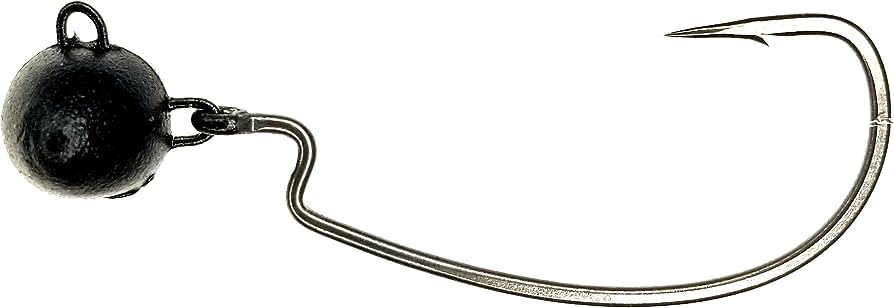
The Rocker Jig is also very versatile and can be used for fishing in a variety of environments, including rocky areas, dense vegetation and sandy bottom areas.
Chatterbait
The Chatterbait combines the action of a jig with the vibration of a blade to quickly cover the water.
Chatterbait is a type of lure that has gained popularity in recent years for its ability to mimic a variety of fish prey, including crayfish, frogs and baitfish.
It is designed with a lead head and metal paddle that creates unique vibrations and swimming movements when retrieved.
This unique swimming action is highly effective in attracting the attention of fish, particularly predatory species such as black bass and pike.
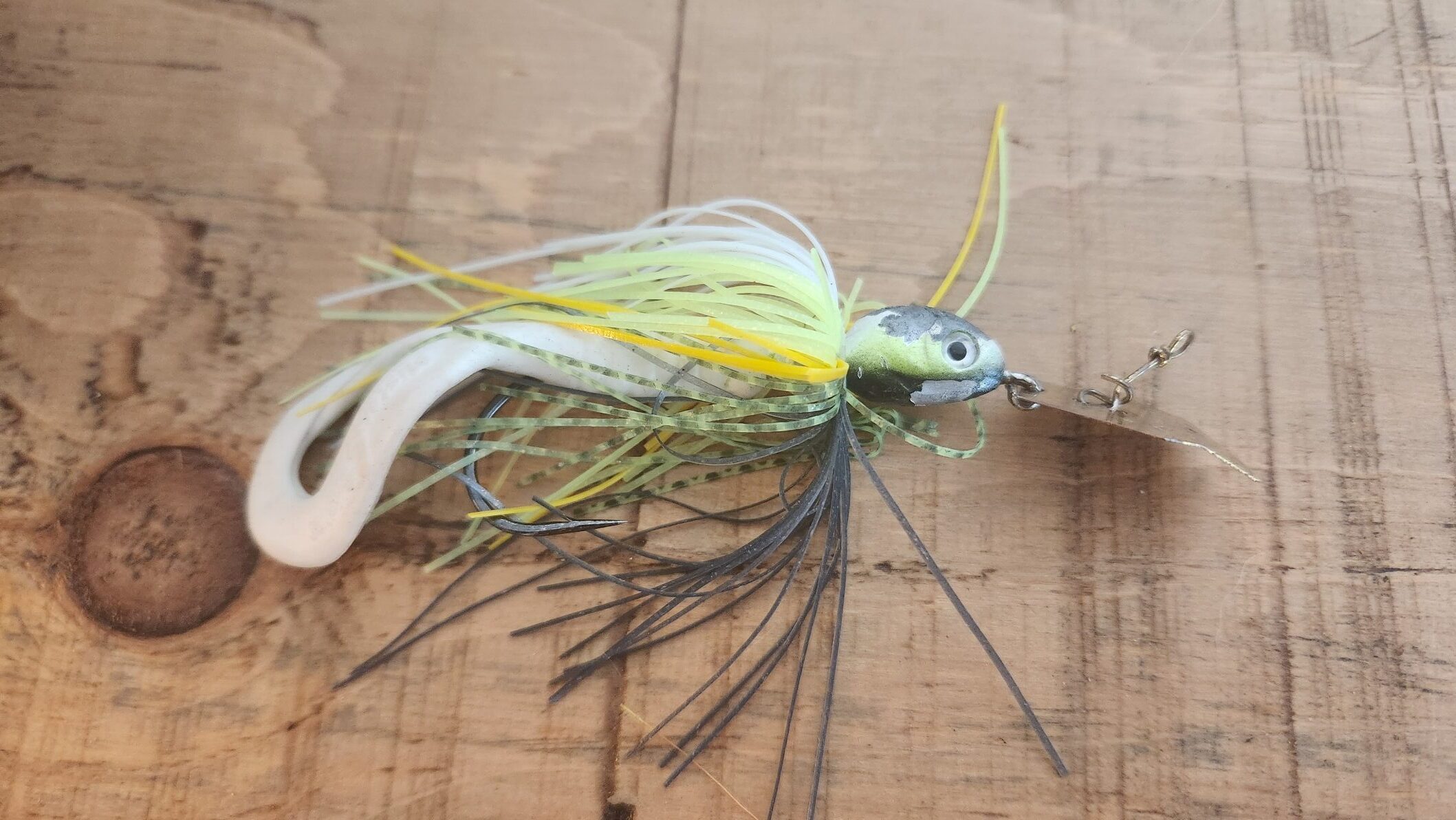
Perfect for exploring large areas and attracting the attention of fish with its vibrating action.
Punch Jig
The punch jig is specially designed for fishing through dense vegetation, armed for big fish.
Featuring a sturdy skirt and hook, it targets fish effectively in crowded areas and offers an attractive presentation.
The Punch Jig is a type of jig designed for fishing in dense vegetation and congested bottom areas. It features a heavy lead head and a short, sturdy hook for easy penetration of dense vegetation.
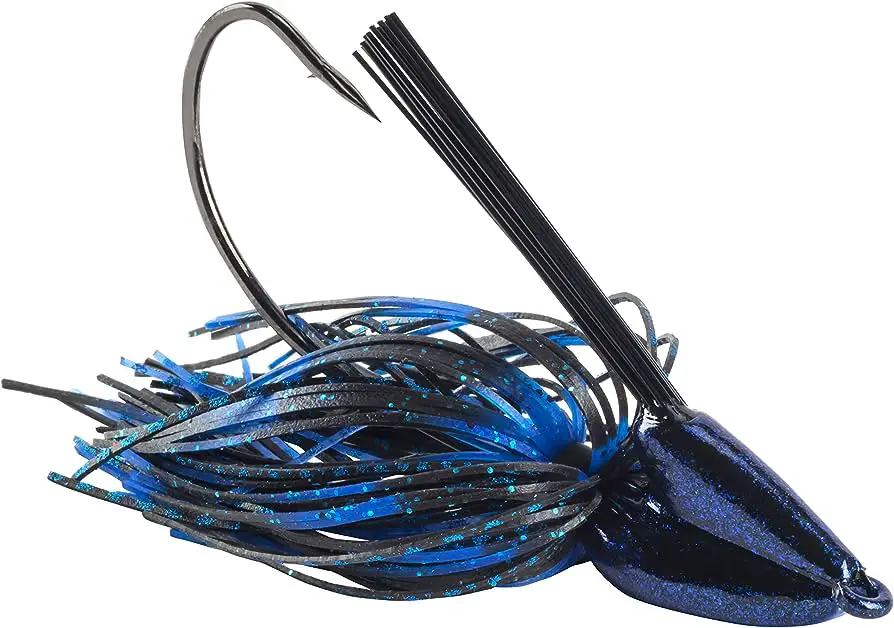
The Punch Jig is often used to target fish hiding in dense vegetation, such as bass and pike.
